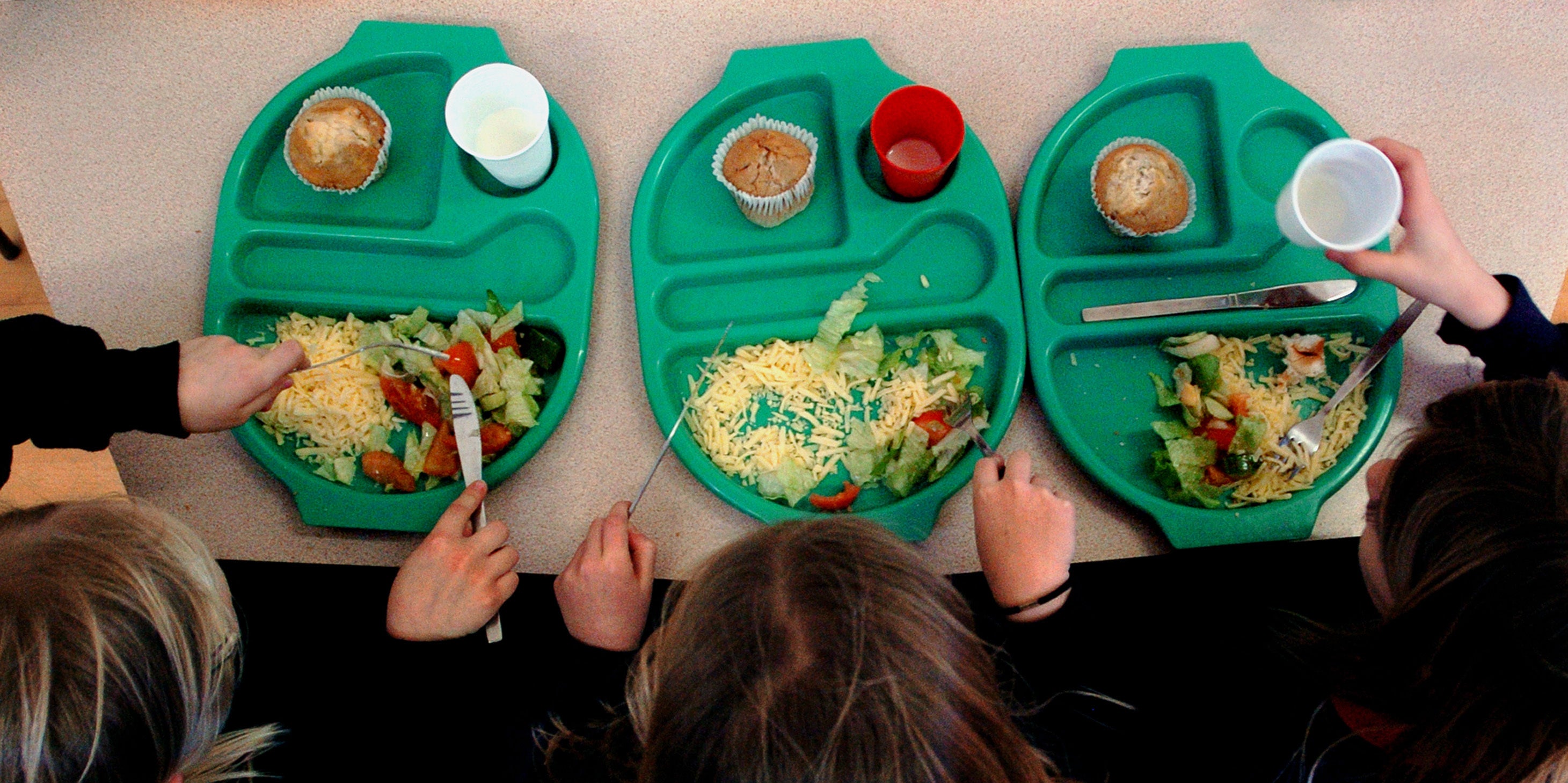Children who claim free school meals earn less as adults despite education – ONS
The ONS said data showed a “persistent earnings gap” between those who received free school meals and other students.

Your support helps us to tell the story
From reproductive rights to climate change to Big Tech, The Independent is on the ground when the story is developing. Whether it's investigating the financials of Elon Musk's pro-Trump PAC or producing our latest documentary, 'The A Word', which shines a light on the American women fighting for reproductive rights, we know how important it is to parse out the facts from the messaging.
At such a critical moment in US history, we need reporters on the ground. Your donation allows us to keep sending journalists to speak to both sides of the story.
The Independent is trusted by Americans across the entire political spectrum. And unlike many other quality news outlets, we choose not to lock Americans out of our reporting and analysis with paywalls. We believe quality journalism should be available to everyone, paid for by those who can afford it.
Your support makes all the difference.Children who claim free school meals go on to earn less than their peers on average despite achieving the same level of education, according to new data.
The Office for National Statistics (ONS) said data published on Thursday showed a “persistent earnings gap” between those who received free school meals and other students.
Free school meals (FSM) are available for pupils who live in a household with an income of £7,500 or less, and attend a state-funded school.
Despite obtaining the same qualification level, disadvantaged pupils went on to earn less than their peers.
The biggest gap over time was seen in those who held Level 4 qualification, such as the higher national certificates (HNC) – a work-related, vocational qualification taken after A-levels – with non-FSM state educated pupils going on to earn on average 1.3 times more – around £5,260.
Including former pupils of private schools, the gap was starkest among those who obtained a Level 6 qualification, including bachelor’s degree graduates.
For example, by the age of 30 those who claimed FSM earned an average of £24,863, around £19,381 less than their privately educated counterparts.
FSM pupils also earned an average of £6,063 less than state-educated pupils who did not qualify for the assistance.
The findings come after analysis of long-term administrative data collected on 38 million individuals in England.
The ONS said part of the overall gap in earnings is because of people from income-deprived backgrounds being much less likely to go on to higher education.
By the age of 30, only 16.2% of those who claimed FSM had a Level 6 qualification – for example, a bachelor’s degree – compared with 28.2% of those who did not qualify for FSM and 57.3% of adults who went to independent schools, according to data collected over the course of 16 years, from 2003 to 2019.
Regardless of educational attainment, half of students who claimed FSM earned less than £17,000 by the time they were 30.
The same figure was £22,717 for former pupils who did not use FSM and £33,042 for privately educated pupils.
The ONS said the gap “can be mostly accounted for” by differences in education, experience in the workplace, ethnicity, gender and “other possible factors”.
However, it said “very small differences in earnings were attributable to ethnicity, gender and the region a person lived in when they attended secondary school”.
A free school meals student with similar characteristics to an independent school counterpart would still earn around 20% less on average, it said.
Children who grow up in low-income households have to play catch-up with their peers from an early age
The ONS said it could not measure for factors including soft skills such as confidence, networking and knowledge of the job market, which could be related to a person’s family background or opportunities available to them, for example access to work experience.
Sara Ogilvie, director of policy, rights and advocacy for charity Child Poverty Action Group, called on the Government to do more following the publication of the figures.
She said: “Children who grow up in low-income households have to play catch-up with their peers from an early age. The long and short term effects of poverty are stark – children leave school earlier, earn less and struggle to progress in work.
“All kids deserve a fair start in life and the best way for the Government to deliver that is to invest in social security for families. But at the moment we’re falling well short of giving the nation’s children the opportunity that everyone deserves.”
James Turner, chief executive of social mobility charity the Sutton Trust, said the data confirms education is “a key driver” of the gap and that university is the “surest route” for social mobility.
He added: “It is absolutely vital that we continue efforts to widen access to university, and particularly at the most selective institutions.
“But today’s data also highlights wider issues around access to the workplace.
“Our own research has shown that young people from lower-income backgrounds face significant barriers in accessing many of the most competitive careers.
“It is vital that we make use of the talents of all sections of our society and support young people from all backgrounds to succeed.”
A Department for Education spokesperson said: “Since 2011, we have narrowed the attainment gap between students from disadvantaged backgrounds and their peers at every stage of education up to the pandemic and recent figures show that a record proportion of the most disadvantaged students are progressing to higher education – including the highest ever proportion of pupils on free school meals.
“We are also supporting the most disadvantaged and vulnerable pupils through pupil premium funding, which is increasing to more than £2.6 billion in 2022- 23 and is the highest cash terms rate since this funding began.”